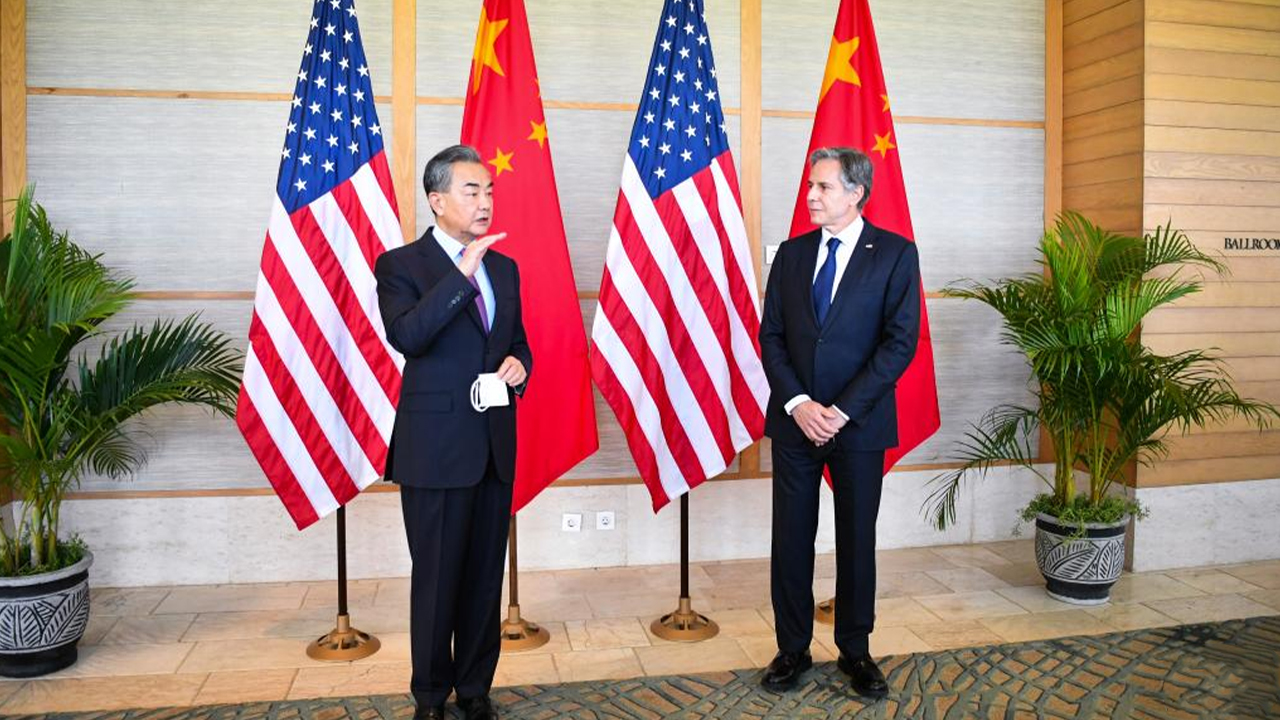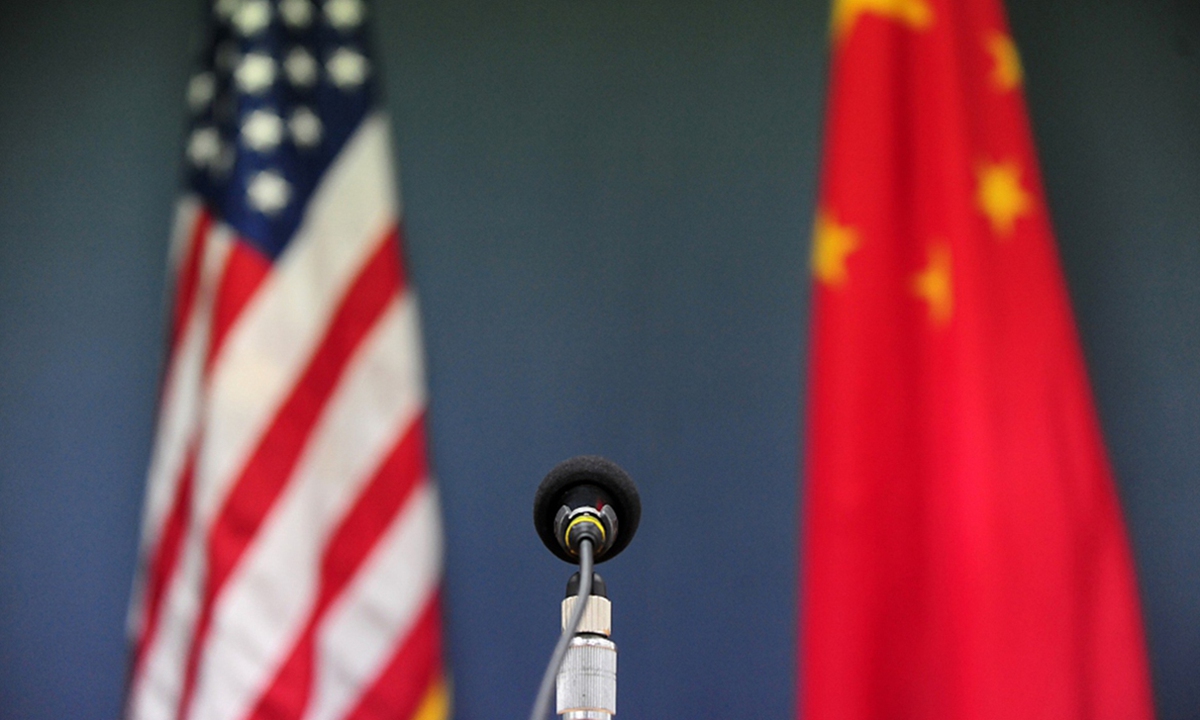
Chinese State Councilor and Foreign Minister Wang Yi (L) meets with U.S. Secretary of State Antony Blinken, a day after the Group of 20 (G20) foreign ministers' meeting, in Bali, Indonesia, July 9, 2022. /Xinhua
Chinese State Councilor and Foreign Minister Wang Yi (L) meets with U.S. Secretary of State Antony Blinken, a day after the Group of 20 (G20) foreign ministers' meeting, in Bali, Indonesia, July 9, 2022. /Xinhua
Editor's note: Hamzah Rifaat Hussain, a former visiting fellow at the Stimson Center in Washington and former assistant researcher at the Islamabad Policy Research Institute, is a TV anchor at Indus News in Pakistan. The article reflects the author's opinions and not necessarily those of CGTN.
Constructive talks between Chinese State Councilor and Foreign Minister Wang Yi and U.S. Secretary of State Antony Blinken after the G20 Foreign Minister's meeting took place, which is a positive sign for world peace.
The major takeaway was that relations can improve if preconceived notions are shelved and principles of mutual respect are adhered to. That said, a few prerequisites need to be satisfied in order for the bilateral relationship to move forward. The United States needs to play a more productive role in global affairs by adhering to its peaceful commitments with China for a more stable, peaceful and prosperous world.
The meeting held after the G20 Foreign Minister's meeting in Indonesia, lasted for more than five hours as direct discussions were held on a number of topics. Foreign Minister Wang Yi said that a breakthrough in China-U.S. relations hinges on a renewed American commitment to uphold three China-U.S. joint communiques.
Recent history however, suggests that the Biden administration has assumed hawkish foreign policies towards China and negated the essence of joint communiques by mirroring the controversial Trump doctrine of secessionist rhetoric, military build ups and labeling China as an existential threat. Furthermore, the U.S. reneging on commitments made by President Joe Biden in 2021 on not changing China's system or forging alliances to provoke Beijing, is not an antidote for peace.

Worthwhile then, is for the Biden administration to consider the four lists that Foreign Minister Wang Yi mentioned to Antony Blinken, with sincerity. This includes a list of wrongdoings that the United States has committed vis a vis China, individual cases that Washington D.C. must resolve, acts in the 117th Congress that are of high concern for China and a list of cooperation proposals which Beijing hopes that the United States takes seriously.
Adherence to the four lists are crucial for world peace as unilateral attempts at molding the world order with an anti-China orientation will breed misunderstandings as was witnessed at the G20 Foreign Minister's summit. This relationship has been described by numerous academics and diplomats as the most important bilateral relationship of the 21st century with its trajectory having an impact on world peace.
Secondly, the meeting made it clear that relations can only improve if anti-China sentiment which is pervasive in American politics and allowed to fester for narrow parochial interests, is eschewed. While there were encouraging claims by Antony Blinken over the United States not changing the status quo in the Taiwan Straits and working for more outcomes from the China-U.S. joint working group consultations, concrete actions must follow assurances.
Note that while the two sides agreed on cooperating on climate change and public health, Antony Blinken claimed that China's relations with Russia are complicating its relationship with the United States which is negative coverage of China through a zero-sum, bipolar outlook. Skepticism of China's motives without basis is counterproductive given that an official policy of neutrality on the Ukraine crisis has been conveyed repeatedly at multilateral forums such as the G20 summit.
Yet, the meeting in Bali showed that meaningful cooperation is still possible between China and the United States as securing cooperative principles and adhering to multilateral principles in 2022 becomes the need of the hour.
Echoing calls from the UN Secretary General, Antonio Guterres, Foreign Minister Wang Yi earlier urged G20 member states to eschew politics of division and focus on win-win cooperation. The truth is that the United States is equally responsible.
Hence, the onus lies on Washington to eschew politics of division, adhere to previous commitments on deescalation and mutual respect with China and contribute meaningfully to a more peaceful world order. Here lies the solution.
(If you want to contribute and have specific expertise, please contact us at opinions@cgtn.com. Follow @thouse_opinions on Twitter to discover the latest commentaries on CGTN Opinion Section.)

